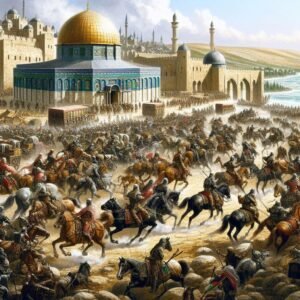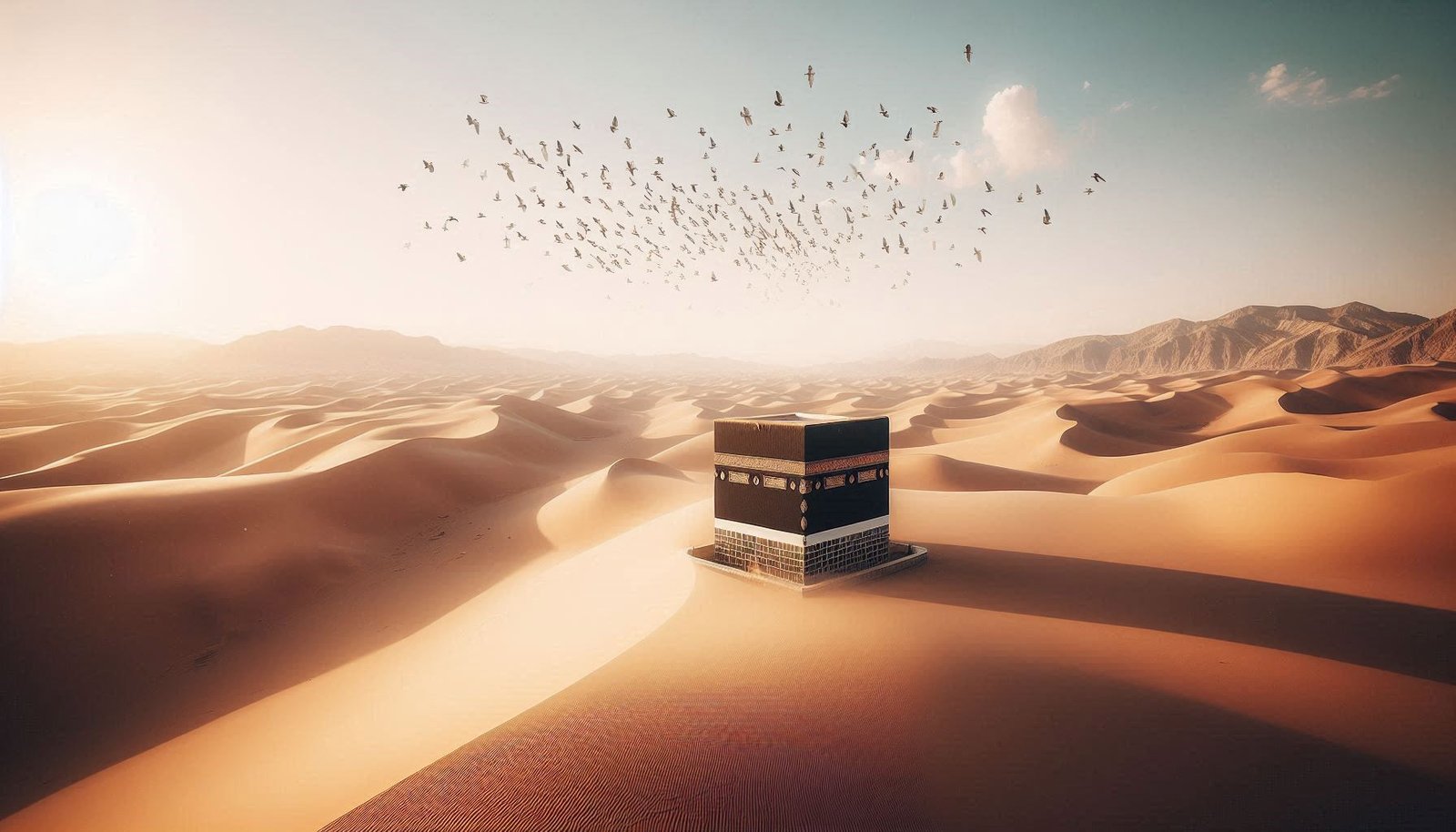– Maaz Ahmed Javed (M.A. Political Science, JMI)
Human history has witnessed numerous battles between truth and falsehood. From Namrud to the Ashab-ul-Ukhdood, or the sacrifices of the Companions of the Cave to the Companions of Muhammad (PBUH), are all different stages of the same battle, which keeps on emerging on the pages of history. Syria (Palestine and surrounding areas) and the people of Syria have a special place in this battle. Every believer has a strong emotional attachment to this region as this is the land of Great Prophets and of the Imam of all mankind Hazrat Ibrahim (A.S.). This region contains different stories of sacrifices. Warriors and martyrs have watered this land with their blood. In every era of history, legions of Mujahideen have been kissing its holy soil. The generation rising on this land is also the generation of Mujahideen. This is the reason why Prophet Muhammad (PBUH) said, “A group of my Ummah will continue to fight for the truth until the command of Allah Almighty (i.e. Judgment Day) comes. O people of Syria! I think it’s you guys.” The struggle of Palestine after the establishment of Israel and the current war is also a link in this tradition. Today, we are surprised to hear the events of the people of Gaza, but it is their living tradition. This is their past and present. And this will be their tomorrow too. As long as this world exists, the people of Syria will continue to create such stories, God willing. All the attributes of people of Syria can be described in one word, i.e. sacrifice. What is sacrifice?
 Ancient Syria (Current Palestine) has always been a battleground between truth and falsehood
Ancient Syria (Current Palestine) has always been a battleground between truth and falsehood
The life of a believer is a struggle throughout. The seed of faith can be sown through a revolutionary slogan like the word La Ilaha Illa Allah, but its rooting, flourishing and the whole journey from a small seedling to becoming a tree is full of struggle. If in his journey he turns away from a faithful attitude, then very soon all the elements of nature can destroy him. Therefore, a constant struggle is required for a Muslim to remain a Muslim, because the person who is authorized to be guided by Allah Almighty in every stage of life is the one who makes it his goal and leans towards Him. The Qur’an states that, “We will show our way to those who fight for us.” (Al-Ankabut) This is the importance of struggle in Islam. But the concept of a life full of struggle is extinct without sacrifice. A forward journey towards a destination requires that a person be ready to sacrifice many small and big things, likes and dislikes, relationships, and love at every moment. Therefore, in the Qur’an and Hadith, the believer has been repeatedly instructed to set his priorities straight. Attaining the Hereafter is preferable to the comforts of this world, he has been recommended to love Allah and His Messenger (PBUH) against all relations and to struggle in His way and to leave the comfort of their home and wage struggle in the path of Allah. This is not possible unless a person’s priorities change, and he must sacrifice for it. If we examine our daily life, we find that the performance of duties like prayer is not possible without sacrifice. It was said about the hypocrites that, “When they get up for prayer, they get up whispering just to show off to the people and they rarely remember Allah.” Because the heart of the hypocrites is empty of faith, and they are not ready to sacrifice even their sleep and rest for the sake of Allah. Thus, sacrifice makes a difference between faith and hypocrisy. A person cannot attain goodness without sacrificing his favourite things. The Qur’an says, “You cannot achieve goodness unless you spend what you hold dear” (Aal Imran) meaning that sacrifice increases spiritual and moral status. And it also creates a high quality like patience in us and it is obligatory on a Muslim. Therefore, Allah Ta’ala said, “Say that my prayer and my sacrifice, my living and my dying are all for Allah, Lord of the worlds.” “(An’aam)
 The life of Prophet Ibrahim (A.S.) is full of sacrifices
The life of Prophet Ibrahim (A.S.) is full of sacrifices
We get a complete picture of this sacrifice in the life of Hazrat Ibrahim. His esteemed life begins with the opposition of his father. As the scope of his calling increases, the trials become tougher until the fire of Namrud becomes his destiny. The stages of opposition become tougher. He has to leave his city. He is forbidden to pray for his father. In the second stage of the test, he is ordered to leave his wife and children in a place where there is no human population. But the hardest part of the test comes when, in old age, he is ordered to put a knife to the neck of a young son. He crosses all these stages with grace. Therefore, Allah Ta’ala declares in his favour that, “Remember that when Abraham was tested by his Lord in a few things and he succeeded in all of them, He said: “I will make you the leader of all mankind.” The question is why these examples are presented in the Qur’an. Is there any significance to these events even today? Can the role of Ibrahim (PBUH) be played again? Yes! This is still possible today. But this requires Abrahamic faith. The faith that has completely surrendered to the Lord of the Universe. The Qur’an says that “His situation was when his Lord said to him: “Become a Muslim”, then he immediately said: “I have become a Muslim of the Lord of the Universe.” The importance of faith in destiny is very high. If we do not have this faith that all the events and happenings in the world, the trials that come upon human beings, the rise and fall of nations, etc. are subject to the special will of Allah Almighty, then we will not be authorized to make even the smallest sacrifice. Today, the people of Gaza are steadfast as they are the custodians of the Abrahamic faith. Their relatives were also separated from them. How many old fathers were deprived of their beloved family members. Millions of people were displaced. But they are seen giving moral support to Mujahideen with the courage of faith. Therefore, the poet’s words are true:
Aaj bhi ho jo Biraheem sa Imaan Paida
Aag kar Sakti hai Andaz e Gulistan Paida

